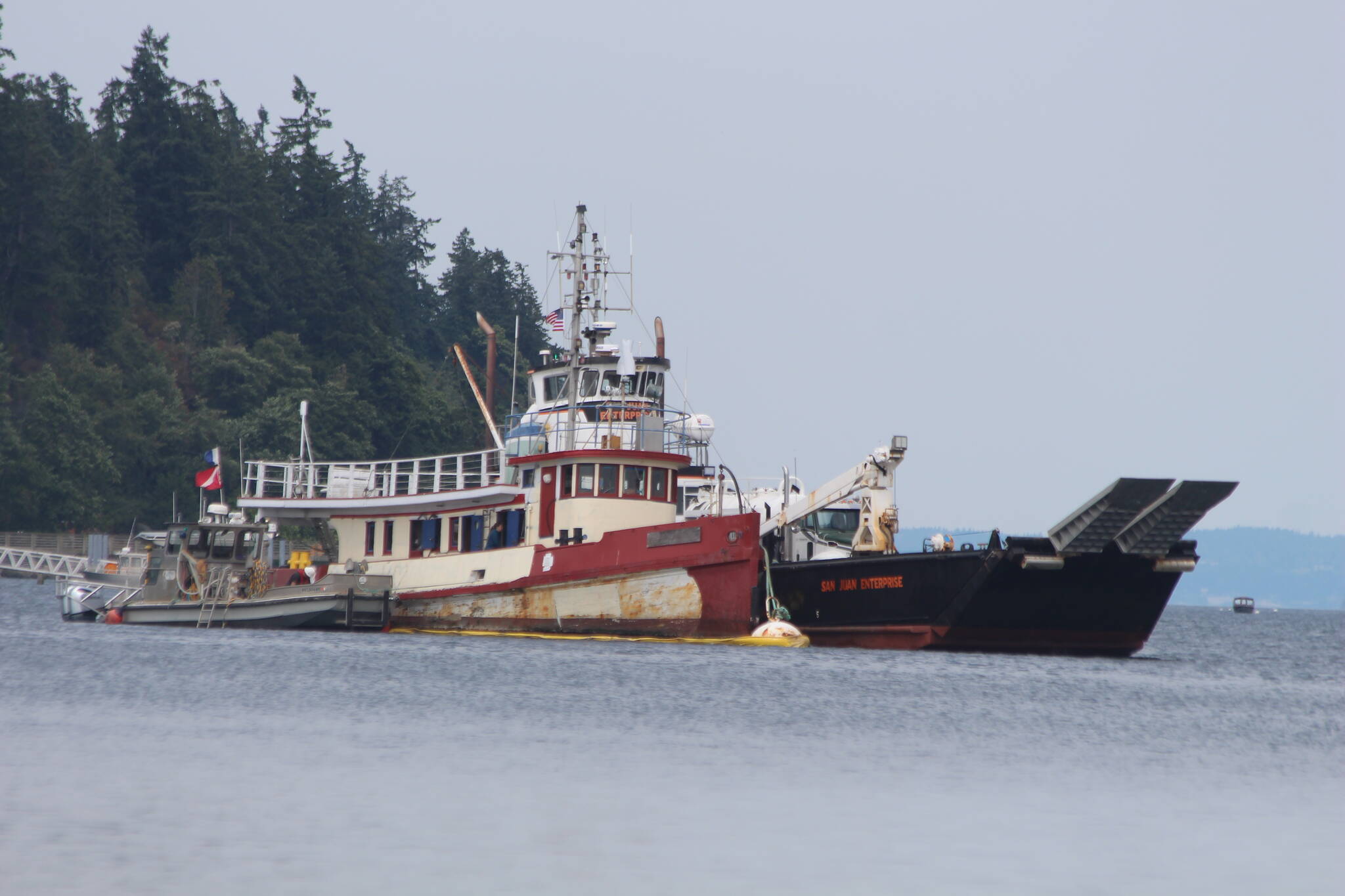The U.S. Coast Guard arrived in Holmes Harbor Monday to clean up the remaining fuel and salvage Shark Lady, a partially sunk 77-foot vessel deemed not seaworthy.
A contractor for the Department of Ecology responded on Tuesday to monitor the defueling operation. The vessel was approximately 500 yards off the site of Nichols Brothers Boat Builders in Freeland, where it was found with its tail end partially sunk below the surface, according to a Department of Ecology Facebook post. The aging vessel was not associated with the boat-building company.
Scarlet Tang, the communications manager for the Northwest Region of the Department of Ecology, said the issue arose after a small leak in the hull of the vessel gradually took on water. She suspected that the owner had been trying to remove the water with a belt pump.
“I think the leak probably just became too significant for the pumping efforts to work,” Tang said.
As the water began to fill the boat, a sheen of fuel was reportedly seen by staff from the Department of Ecology in the water, according to the post.
Shark Lady has an estimated fuel capacity of 4,000 gallons, the Department of Ecology said on Facebook.
“The contractor removed about 1,500 gallons of fuel and some other things like batteries,” Tang said.
Now the vessel has been seized by the Department of Natural Resources, and it is making arrangements to have the boat towed to a location where it can be hauled out and then disposed of, likely in Port Townsend, Tang said. Though it can take time to find a boat yard that will take the vessel, for now the immediate danger of the fuel spill has been removed, she said.
While some of the fuel that had already leaked into Holmes Harbor before the Department of Ecology and the U.S. Coast Guard arrived on scene is not believed to be recoverable, Tang said, a boom was placed in the water to assist with absorbing and containing the fuel spill.
“Even a small amount of oil could pollute a huge amount of water, so it could potentially affect wildlife,” Tang said. The oil could affect fish directly as well as the microorganisms and plant life that they depend on, she said.
Tang encourages owners to use the Vessel Turn-in Program hosted by the Department of Natural Resources to safely dispose of their vessels. The program allows the department to dismantle vessels that do not yet satisfy the definition ”derelict” or “abandoned” but are deteriorating and likely to match that definition soon, the website explains.
Shark Lady is an example of why it’s essential for owners who can no longer repair their vessels to contact the Vessel-Turn in Program and work with state agencies to help get them removed from the water before they become a problem for the environment, Tang heeded.
Learn more about the Vessel Turn-in Program at dnr.wa.gov/aquatics/recovering-derelict-vessels/vessel-turn-program.



